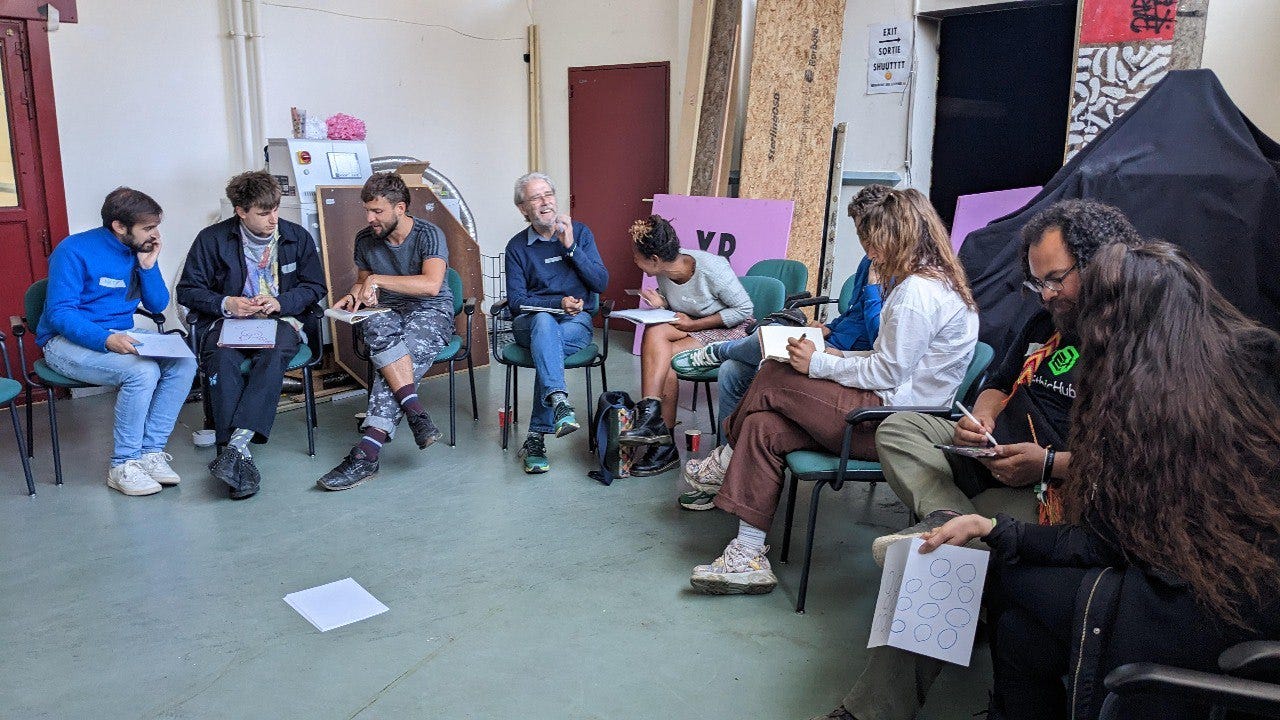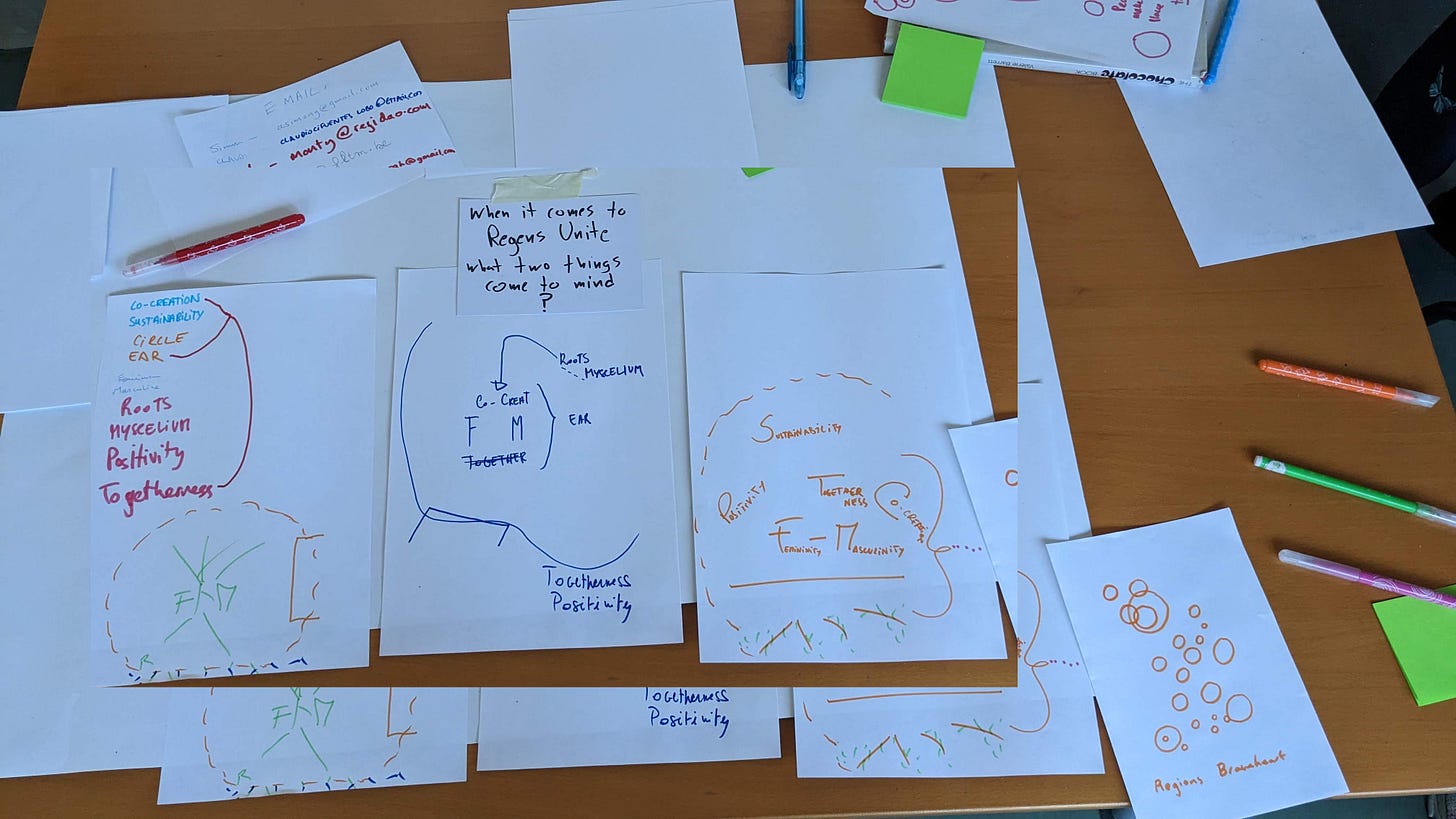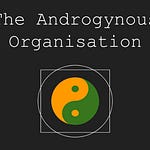Hola!
English speaking friends - welcome to La Dream Machine’s Podcast! Our goal is to host space multidisciplinary conversations on web3, AI, public goods, regeneration and psycotechnologies, with a latin, critical and social perspective. We aim to host them in spanish mainly, but we are open to english when there’s no other way - like today’s interview with Cecilia Iaconelli. It was originally recorded and published in spanish a couple of weeks ago, but we decided to re-record in english it to broaden it’s reach. You’ll find the episode description, notes & maps in the following section. Just one sec to say the same in spanish!
Amigxs hispanohablantes, bienvenidxs al segundo episodio del pódcast de La Dream Machine! Ya se dieron cuenta: este capítulo va en inglés. Pero no se achicopalen. Es una entrevista a la antropóloga italiana Cecilia Iaconelli que publicamos primero en español, y ahora la re-grabamos en inglés para ampliar su alcance.
Conversamos sobre el valor de la antropología, la re-significación de espacios urbanos en Valparaíso, la comunicación de la antropología más allá de la academia, los resultados de su taller en Regens Unite 2023, las dificultades en el lenguaje regenerativo, y la antropología como herramienta para desafiar dogmas, prejuicios e ideologías. La escuchan acá:
Antropología aplicada, etnografías colaborativas y el valor simbólico de la regeneración
Listen now (82 min) | Hola! Hoy, 21 de junio, es el día más corto o más largo del año según los hemisferios. En Chile, bien al sur, se celebra el solsticio de invierno y es feriado en el país, luego de que declararan el 21 de junio como el Día Nacional de los Pueblos Indígenas. Por aquí, aprovechamos la fecha para lanzar dos estrenos mundiales. Así nomás.
Antes de continuar en inglés, un anuncio. Redujimos el ritmo de publicaciones porque estamos enfocados severamente en levantar fondos para continuar lo que estamos haciendo desde La Dream Machine: este pódcast, la segunda fase de la investigación “Web3 con Impacto Social en LATAM”, que ya entra en tierra derecha, y más!
Sígannos la pista en twitter, que activamos con fuerza en el último mes, y ojo con lo que estamos preparando para la ronda 18 de los Gitcoin Grants con lxs amigxs de la Solarpunk Guild!
Nos vemos al final,
Claudio 👽
Episode notes
Cecilia Iaconelli is originally from Italy. She graduated both from economy and anthropology, and is a singer/artist. We met at Regens Unite 2023, where she facilitated the workshop “Collaborative Etnography for regens community”. In this conversation we talked about the results of the workshop, the difficulties of regenerative language, and anthropology as a tool to challenge dogmas, prejudices and ideologies.
Below you’ll find a description a detailed description of the workshop and the maps Cecilia crafted to synthesize the results. For a richer experience, you can listen the conversation with them at hand!
For more of Cecilia’s work, you can check her Instagram, LinkedIn, website and Al Doum & The Faryds Spotify, one of the bands where she sings.
Collaborative Etnography at Regens Unite 2023
After a 101 theoretical session to anthropology, Cecilia prompted a practical excercise for the 10 people that gathered for the workshop. She asked us to write down the first two things that came to mind when thinking of “Regens Unite”. Here’s the raw list:
Time for analysis. First of all, Cecilia noted that ALL words are different, not a single one repeated. Throughout the interview we discuss the trade-offs between the positive diversity on the regen language (not a monolithic enterprise, etc.) v/s the negative side (not having a common language to speak about regeneration at all).
Then, Cecilia noted that the words can be divided into two groups: conceptual constructs and tangible elements, being the first group the noticebily larger one.
One of the trade-offs we discussed: in Regens Unite kind of spaces, highly elevated conceptual constructs can inspire and generate extremely discussions/realisitaions. But, if it is not supported from a sensitive and material perspective, it can create miscommunication or a lack of practical action and cohesion.
This also opens a more marxist perspective. Which socioeconomic groups are then “able” to work with such sophisticated concepts? Therefore, which groups are closer to regenerative practices? Most probably the higher tiers of society, as we also discussed.
When analysing the tangible elements only, Cecilia grouped them in two groups: branching objects and parts of the body.
And when analysing the conceptual constructs, she divided them in three groups: abstract concepts, relational practices and attitudes.
What can we make out of these? Hit PLAY and listen to Cecilia herself!
To wrap things up, here are some pictures of the workshop. See you next time ❤️


















Share this post